HIV on Ukraine's frontline: Soldier who sought escape in battle
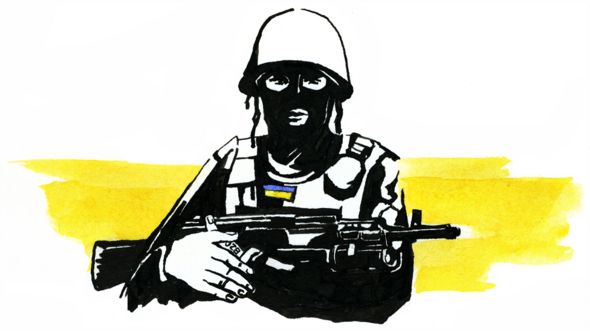 BBC/OLESYA VOLKOVA
BBC/OLESYA VOLKOVA"I am HIV positive; I already had HIV when I joined a volunteer battalion to fight separatists in eastern Ukraine," says Ukrainian war veteran Vasyl. "I had no fear for my life. I had nothing to lose."
Vasyl is not his real name, but this is the story of a man with HIV who volunteered for the front line and was shocked by the level of ignorance that other soldiers had about his virus.
When he travelled east, Vasyl tore up his HIV status certificate. The only person he told was the commanding officer of his combat unit fighting Russian-backed rebels.
"My commander told me to write 'B20' on my left hand when I'd go into battle. If I were wounded or killed, medics would know what I had."
They would know what B20 meant, but his fellow soldiers did not.
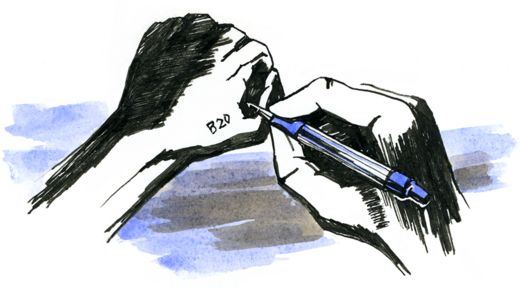 BBC/OLESYA VOLKOVA
BBC/OLESYA VOLKOVAWhile Vasyl kept his HIV positive status quiet, he was startled to find many of his comrades exchanging food or $10 in return for sex near the front line.
Was the front line becoming a hotspot for spreading HIV, hepatitis C and other infectious and sexually transmitted diseases (STDs), he wondered.
People with HIV face stigma in Ukraine. And yet it has the second-highest rate of HIV infection in Europe behind Russia and, despite regular public campaigns, there is still a degree of ignorance about how the virus is spread.
Vasyl knew his HIV could only be passed on through sexual intercourse or blood transfusion, but he was worried what would happen if his colleagues found out.
"Ninety per cent of my comrades didn't know what HIV/Aids meant. They were armed and could have killed me if I'd told them," says the ex-soldier.
When he took his antiretroviral pills, his comrades assumed he was taking illegal stimulants.
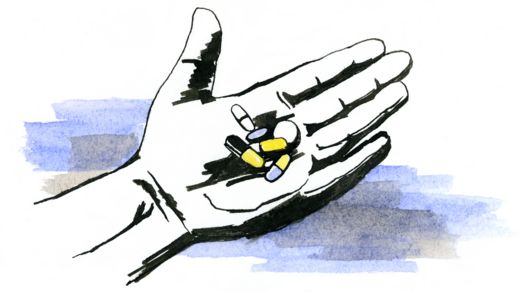 BBC/OLESYA VOLKOVA
BBC/OLESYA VOLKOVAUkraine's rate of HIV infection may have slowed down, but it still struggles to curb the spread of the virus.
"People at risk include mostly sex workers, drug addicts and men who have sex with other men. Servicemen and war veterans recently have joined them," says Krystyna Rivera from the charity 100% Life, which aims to stop the spread of the epidemic.

HIV in Ukraine
- 244,000 people* in Ukraine were living with HIV in 2018
- 1% of 15-49 year-olds have HIV*
- 47% of people with HIV knew their status
- 19,000 people were newly infected in 2018
Source: Ukraine health ministry/ UNAids.org
*UN figures say 360,000 people in Ukraine had HIV in 2018, which is 1.5% of 15-49 year-olds
Read more: Ukraine's youngest HIV campaigner

There is no reliable information on the spread of STDs in eastern Ukraine, where the army has been fighting Russian-backed separatists in Ukraine's Donbas region since 2014. The war has claimed the lives of 13,000 people and wounded over 30,000.
But Vasyl says soldiers did not bother to practise safe sex, even with a prostitute. "Half the volunteer fighters felt like they were on a suicide mission, so they couldn't care."
The local women had lost their homes and jobs and had seen their lives and those of their families torn apart. Sex for them was just a way to survive, he believes.
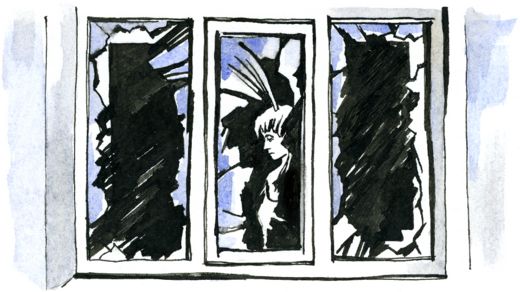 BBC/OLESYA VOLKOVA
BBC/OLESYA VOLKOVAWhen he was at the front, HIV tests were not included in the army's regular health screening for volunteer soldiers. Things have improved, but the defence ministry has not responded to the BBC's request for details.
The main obstacle is social stigma, as people are loath to find out whether they have HIV. Having the virus in a small town or village could lead to gossip, condemnation and being ostracised.
While two-thirds of cases are passed on through unprotected sex, the health ministry says one in five cases of infection come from injecting drugs.
The majority of people who know about their HIV are terrified of social isolation, says psychologist Hanna Kuzmenko, who has worked with HIV-positive patients for 20 years at a regional medical treatment centre in central Ukraine.
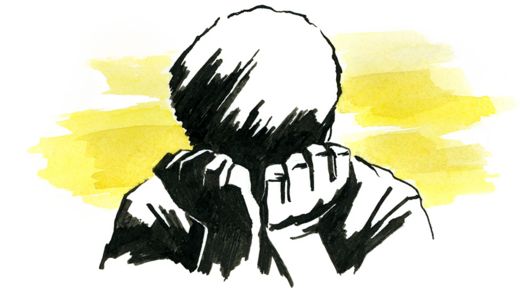 BBC/OLESYA VOLKOVA
BBC/OLESYA VOLKOVA"Two to three per cent of those with HIV never tell anyone. They live in constant fear and under pressure. I have some patients who've only confessed to me," she says.
The key for Ms Kuzmenko is for better and clearer information, in the big cities as much as villages.
For a decorated war veteran like Vasyl, it was combat that helped him deal with the frustration and anger in the years after diagnosis.
But he speaks of one life-changing moment during the conflict that shook him to the core.
"We were on duty patrol. I went to warm up and was chatting to my comrade who wanted to stay in the vehicle a few moments more to keep warm. Then a missile hit our car. My comrade was dead."
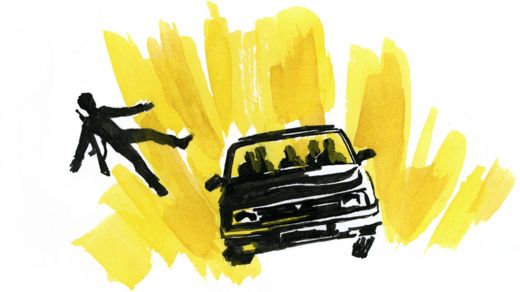 BBC/OLESYA VOLKOVA
BBC/OLESYA VOLKOVAWhen he woke up in a military hospital, he could not believe he had survived.
He has since taken fewer risks and now views life as more precious. "I wanted to live! My life made sense."
Illustrations by BBC's Olesya Volkova

No comments:
Post a Comment